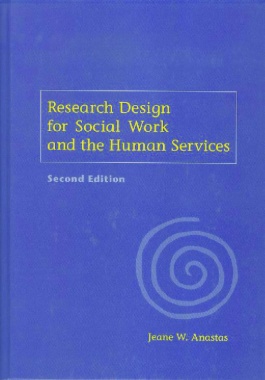Research Design for Social Work and the Human Services integrates a range of research techniques into a single epistemological framework and presents a balanced approach to the teaching of research methods in the "helping professions." Jeane W. Anastas begins with a discussion of the different philosophical perspectives within which social research occurs and continues with problem formulation, research design, and methodological issues influencing data collection, analysis, and dissemination. She presents both fixed (quantitative) and flexible (qualitative) methods of research, granting legitimacy, value, utility, and relevance to both styles of inquiry.
Utilizing complete case studies to illustrate different methodological approaches, Research Design for Social Work and the Human Services integrates material on women and people of color, and draws attention to the ways racism, heterosexism, sexism, and classism affect the conceptualization and conduct of research. Anastas not only exposes these biases but actively addresses the experiences, needs, and concerns of clients of both genders and different races, ethnicities, sexual orientations, cultures, and classes.
- Contents
- Preface to the Second Edition
- Preface to the First Edition
- Acknowledgments
- About the Author
- PART I: Research Design in Context
- 1. The Nature of Science in the Helping Professions
- 2. The Problem Formulation Process
- PART II: Types of Research Designs
- 3. Flexible Method Research
- 4. Flexible Methods: Case Study Design
- 5. Fixed Methods: Descriptive Research
- 6. Fixed Methods: Relational and Longitudinal Research
- 7. Fixed Methods: Experimental Research
- 8. Single-Subject Designs
- PART III: The Elements of Research Design
- 9. Research Ethics for the Helping Professions
- 10. Who Will Be Studied: Sampling
- 11. Basic Issues in Data Collection
- PART IV Methods of Data Collection
- 12. Observation
- 13. Interviewing
- 14. Questionnaire Design
- 15. Selecting an Existing Measure
- PART V: Methods of Data Analysis and Dissemination
- 16. The Content Analysis of Narrative Data
- 17. Descriptive Statistics
- 18. Principles of Inferential Statistics
- 19. Computer-Assisted Data Analysis
- 20. Writing About Research
- Glossary
- References
- Index

